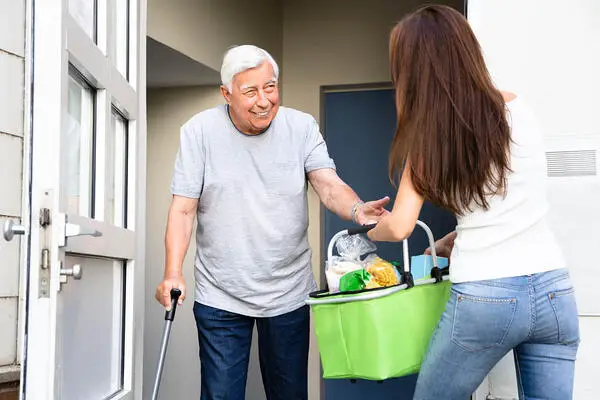
Five Daily Needs of Seniors that Must be Met
Taking care of a senior citizen can be difficult both emotionally and in terms of time management. When your loved one reaches a condition in which it is difficult for them to take care of themselves it is important to assess their limitations and think up a strategy for how their needs can be met.
But what are those needs? In this article, we outline things that most seniors will need on a daily basis and discuss how you can help them reach these needs.
Food
As senior citizens lose mobility it can become very hard to prepare their own food. Even very simple recipes may involve standing for thirty minutes at a time. While they may be able to take care of some nutritional needs on their own, it’s important to find out their limitations, and think up a strategy to make sure that they have consistent access to proper nutrition.
Hygiene
Taking care of a senior citizen’s hygiene needs is a challenging task both physically and emotionally. This is particularly true for people who find themselves taking care of their parents or other family members of an advanced age.
Yet it is an important component of staying healthy. Talk to your loved one about what they can do on their own and what they need help with. Be as candid as possible. It’s uncomfortable but important for your loved one’s physical and emotional health to ensure that their hygiene needs are being met.
Companionship
This final consideration is often the easiest to forget. Well-meaning caregivers can spend so much time on the essentials that they forget the person they are taking care of has the same need for human interaction that they do.
Seniors are often more isolated than the rest of the population both because they may lack the ability to transport themselves, and because they are unfamiliar or uncomfortable with common forms of digital communication.
The digital divide refers to the difference between people who have access to digital technology, and those who do not. In the United States, seniors make up a significant portion of people on the wrong side of the digital divide. Not because they can’t afford it, but because they don’t know how to use it
This means that unless other people are making a concrete effort to interact with the senior, they may not have companionable relationships with anyone.
While all of the above considerations will help to sustain a person’s vitals, companionship can be dependably counted on to lift spirits and even improve healthcare outcomes. People with strong social bonds tend to live longer, happier lives.
Experienced caregivers have realized the benefits of animal companions for residents and urge families to consider pet therapy as part of a holistic care plan. Interaction with animals can reduce stress, combat loneliness, and encourage more social engagement among seniors.
Errands
Admittedly, in the age of Instacart and Grubhub, it is easier than ever to take care of errands. These services are a significant lifeline for senior citizens who can afford them. However, they are not financially accessible to everyone, and they contain imperfections for those who can pay for the service.
For example, most delivery businesses do not allow drivers to unload goods in the customer’s house, meaning some seniors may struggle to get their orders inside
Furthermore, many crucial items, like pharmaceuticals, are harder to get delivered. Think about how often you have errands to run. Daily? Multiple times a day? Now imagine trying to do them without stable access to a car. Or an inability to lift heavy objects.
Consider the physical limitations of the person you are caring for and offer to perform errands that fall beyond the scope of that person’s abilities.
For many senior citizens, doctor appointments will be a regular chore item. These are particularly important for monitoring health conditions, learning more about seasonal risks, and generally assessing the health of your loved one.
Chores
Senior citizens may not be able to take care of their household chores the same way they used to. Dishes, laundry, and light cleaning can all be difficult and sometimes dangerous tasks for people of an advanced age to take on.
All homeowners know that even a day or two of neglecting chores can accumulate into a large mess. Sustained messiness can result in bacteria and even pest infestation that carries a further risk of disease. People who are providing care for senior citizens should go in with a list of chores in mind each day. Regular cleaning can usually be accomplished quickly, and significantly reduces the risk of health hazards.
Of course, a nice clean home can also improve the senior citizen’s frame of mind. A messy house that one can’t clean on their own can be a source of mental and emotional distress. By helping with simple household chores, you may also improve your senior citizen’s mental state as well.
Providing Care
It’s natural to feel overwhelmed by this list. Food, errands, transportation. Hygiene? Taking care of these things can be a lot like a full-time job. Not everyone is able to do it. Handing over care of your loved one to a stranger is a hard decision to make but it is often a necessary and well-advised step for everyone involved.
Unfortunately, it is also expensive. Talk to your loved one’s insurance provider about what kind of nursing care options they have built into their coverage. Depending on where you live, there may also be state-provided care assistance packages that can make the process more affordable.